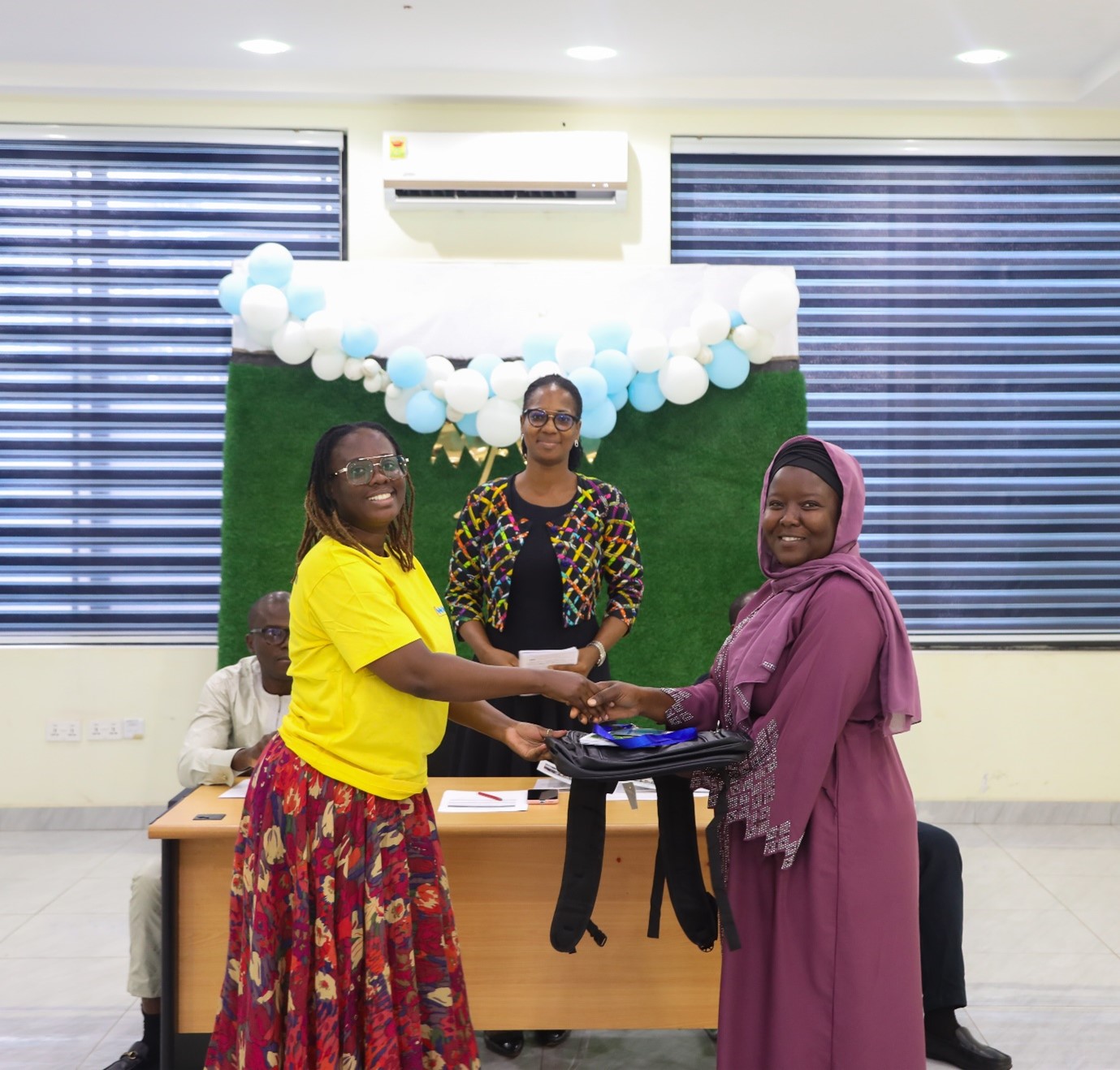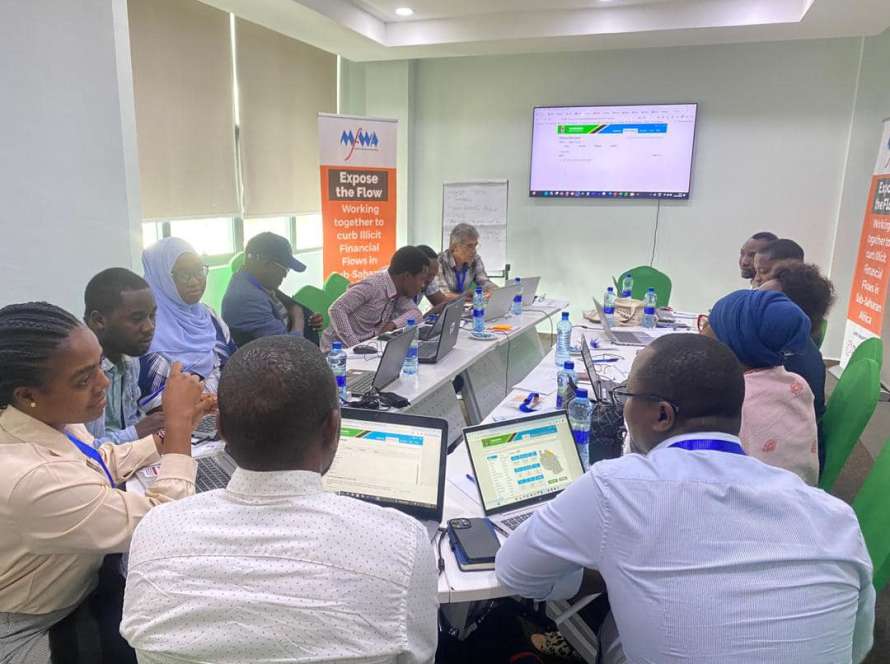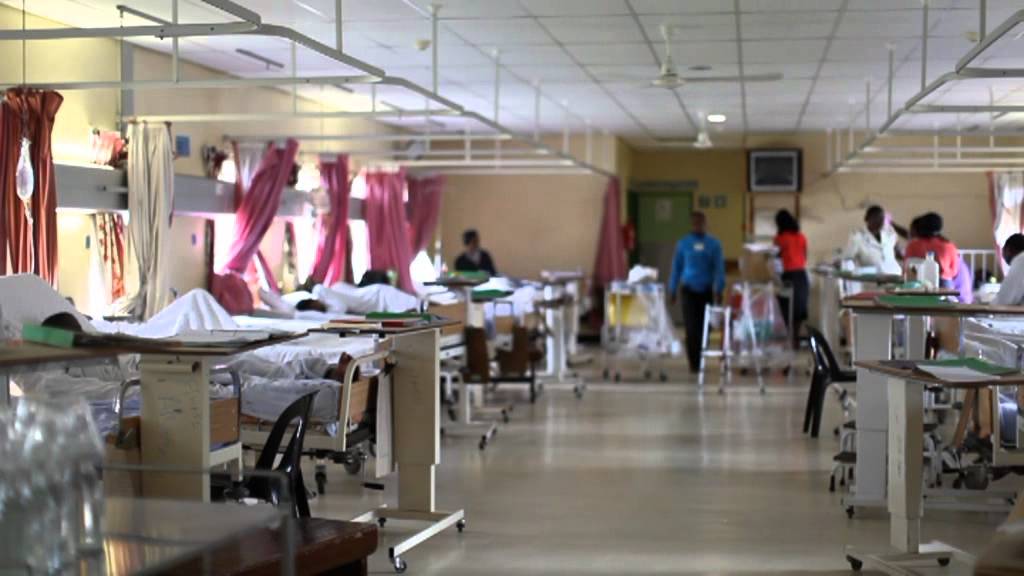A tradition of award-winning journalism by early career journalists who received training through the MFWA’s Next Generation Investigative Journalism (NGIJ) Fellowship, has been continued by a Fellow of the fifth cohort of the Fellowship, Afia Agyapomaa Ofosu.
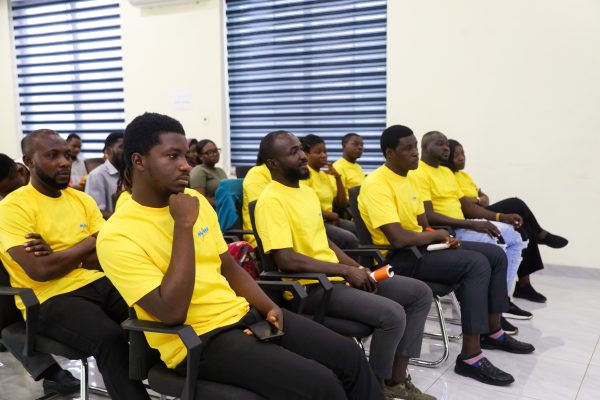
On 25th December, 2024, Afia was named the winner of the Urban Resilience category of the prestigious Resilience in Focus Photo Story Contest, an awards programme organised by Global Resilience Partnership (GRP), an international organisation working to improve eco resistance to climate change. The GRP organised the awards in collaboration with Green Africa Youth Organization (GAYO), an Africa-based organization that works to foster environmental practices that are in harmony with nature.
She was the only female African winner among a male-dominated group of storytellers from across the continent, including Uganda, South Africa and Ghana.
Her award-winning story spotlights the efforts of Gifty Avevor, a woman on a mission to combat plastic waste and drive sustainability in urban communities. Using her mobile phone, Afia captured the resilience, innovation, and determination of Gifty, in her fight against environmental pollution through recycling.
“The story is a direct product of mobile journalism skills that I learnt from my participation in an NGIJ Fellowship by the Media Foundation for West Africa (MFWA) last year (2024)” Afia said in a phone interview in Accra.
“In fact, I was on my way home one evening, during the fellowship, when I saw some people segregating plastic waste; by this time, I had become sensitive to the fact that my mobile phone is a perfect tool for telling stories, and because the Fellowship that I was participating in was on environmental journalism, I recognised that there was a climate related story here to tell.”
Afia says she followed those segregating the plastic waste to a recycling company – Lewis Polyplastic Recycling Company (in the Ga Central Municipality of Ghana’s Greater Accra Region) – “and that is how I did the story,” she said.
Afia was one of 20 fellows who took part in the fourth and fifth cohorts of the NGIJ Fellowship, a Fellowship that the MFWA has established for grooming early career journalists into impactful change-making investigative journalists.
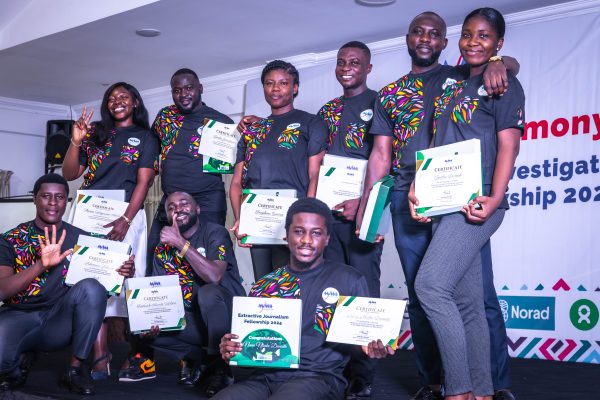
The fifth cohort of the Fellowship focused on environmental journalism. The curriculum of this cohort included a module called Mobile Journalism, under which Fellows learned that their mobile phones are as powerful for storytelling as they are handy. Under this module, they were taught how to take compelling photos, and recording quality videos as well as audio with their mobile phones.
She says her award-winning story, which she did while still in the Fellowship, was inspired by the exciting discovery that she did not need more than the camera and recording capabilities of her mobile handset to tell a good story.
“I’d like to thank the Media Foundation for West Africa and Oxfam in Ghana for the opportunity to participate in the Fellowship which has really helped me develop a nose for news and disarmed me of any excuses to be an impactful journalist with just my (mobile) phone,” Afia said.
As a prize for her award, Afia received US$1,000. However, she says that the global exposure that the opportunity has brought her is what she cherishes the most.
“From here, the sky is the limit for me,” she said.
About the Next Generation Investigative Journalism Fellowship (NGIJ)
The Next Generation Investigative Journalism Fellowship (NGIJ) is an MFWA training and mentorship programme with the mandate of empowering young journalists with investigative journalism skills.
The objective is to build a pool of next-generation investigative journalists who will contribute to improving lives and promoting good governance through journalism excellence. The NGIJ programme, now in its fifth year, builds the capacity of early-career journalists in the West Africa region to be able to conduct critical, high-quality, fact-based and in-depth reporting.
Every year, the Fellows are recruited through a competitive process of selection including aptitude tests and interviews. Under the programme, the selected journalists are hosted in Ghana for comprehensive training that run for three to six months.
The training includes a mentorship programme with Fact-Check Ghana and The Fourth Estate, two MFWA public interest and accountability journalism projects made up of seasoned journalists.



